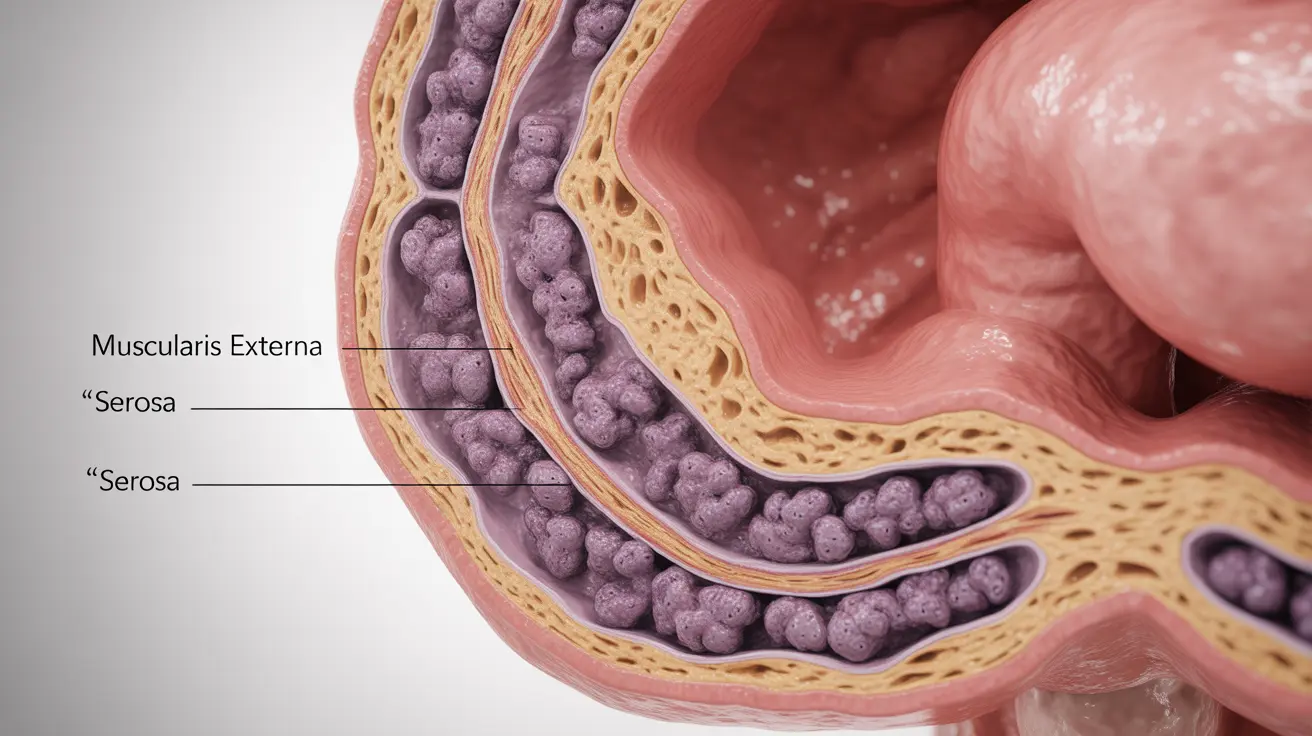Early detection of colon cancer can significantly improve treatment outcomes, making it crucial to understand the symptoms associated with stage 1 colon cancer. While this early stage can often be challenging to detect, knowing what signs to watch for and maintaining regular screening schedules are essential steps in protecting your health.
In this comprehensive guide, we'll explore the symptoms, detection methods, and importance of early screening for stage 1 colon cancer, helping you make informed decisions about your digestive health.
Understanding Stage 1 Colon Cancer
Stage 1 colon cancer represents an early phase of the disease where cancer cells are confined to the inner layers of the colon wall. At this stage, the cancer hasn't spread to nearby lymph nodes or other organs, making it highly treatable when detected early.
Common Symptoms to Watch For
While stage 1 colon cancer often develops without obvious warning signs, some people may experience subtle symptoms that shouldn't be ignored:
- Changes in bowel habits
- Unexplained fatigue
- Mild abdominal discomfort or cramping
- Occasional blood in stool
- Unexplained weight loss
Changes in Bowel Movements
One of the earliest indicators of colon cancer can be changes in your regular bowel patterns. These changes might include:
- Alternating diarrhea and constipation
- Narrowing of stools
- Feeling of incomplete bowel emptying
- Changes in stool consistency
The "Silent" Nature of Early Colon Cancer
Stage 1 colon cancer is often referred to as "silent" because many patients experience no noticeable symptoms. This characteristic makes regular screening particularly crucial for early detection and successful treatment outcomes.
Importance of Regular Screening
Because stage 1 colon cancer typically presents few symptoms, screening becomes the primary tool for early detection. Current guidelines recommend:
- Regular colonoscopy starting at age 45 for average-risk individuals
- Earlier screening for those with family history
- Follow-up screenings based on personal risk factors
- Additional screening methods like stool tests when appropriate
Risk Factors and Prevention
Understanding your risk factors can help determine when to begin screening:
- Family history of colorectal cancer
- Personal history of inflammatory bowel disease
- Lifestyle factors (diet, physical activity, smoking)
- Age (risk increases after 45)
When to Seek Medical Attention
While mild symptoms might seem insignificant, certain situations warrant prompt medical evaluation:
- Persistent changes in bowel habits lasting more than two weeks
- Unexplained fatigue that affects daily activities
- Any amount of blood in stool
- Ongoing abdominal discomfort or bloating
Frequently Asked Questions
What are the common symptoms of stage 1 colon cancer to watch for? Stage 1 colon cancer symptoms can include changes in bowel habits, mild abdominal discomfort, unexplained fatigue, and occasionally blood in stool. However, many people experience no symptoms at this early stage.
How can changes in bowel habits indicate early colon cancer? Changes such as alternating diarrhea and constipation, narrower stools, or feelings of incomplete evacuation can be early warning signs. Any persistent change lasting more than two weeks should be evaluated by a healthcare provider.
Why is stage 1 colon cancer often called "silent" or asymptomatic? Stage 1 colon cancer is considered "silent" because cancer cells are still confined to the colon wall and haven't grown enough to cause noticeable symptoms in many cases. This makes regular screening crucial for early detection.
How important is screening for detecting stage 1 colon cancer before symptoms appear? Screening is vital for detecting stage 1 colon cancer since most cases are asymptomatic. Regular colonoscopies and other screening methods can identify cancer at its earliest, most treatable stage.
When should I see a doctor if I notice mild abdominal discomfort or fatigue related to colon health? You should consult a healthcare provider if you experience persistent abdominal discomfort, unexplained fatigue, changes in bowel habits lasting more than two weeks, or any blood in your stool, even if symptoms are mild.




